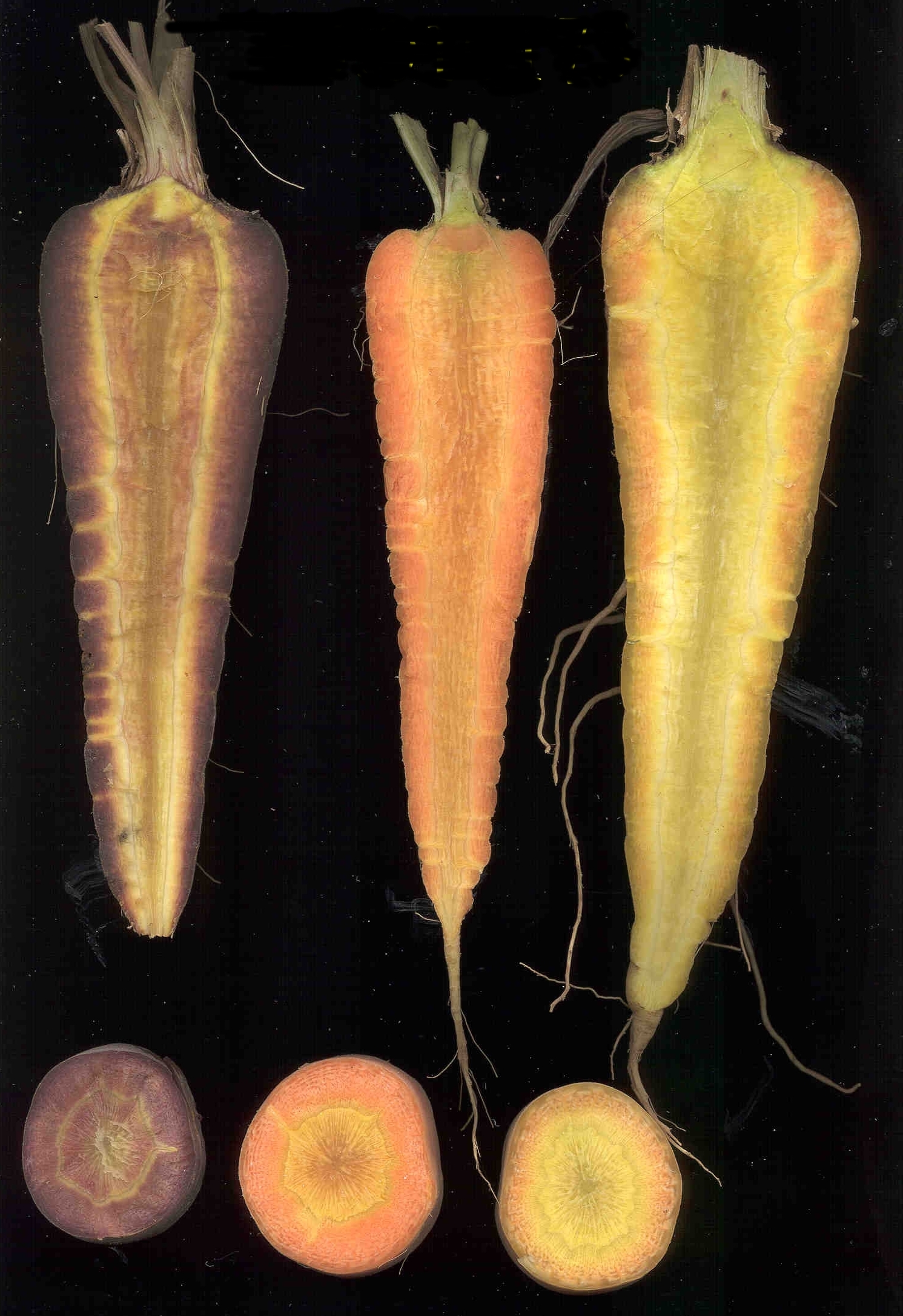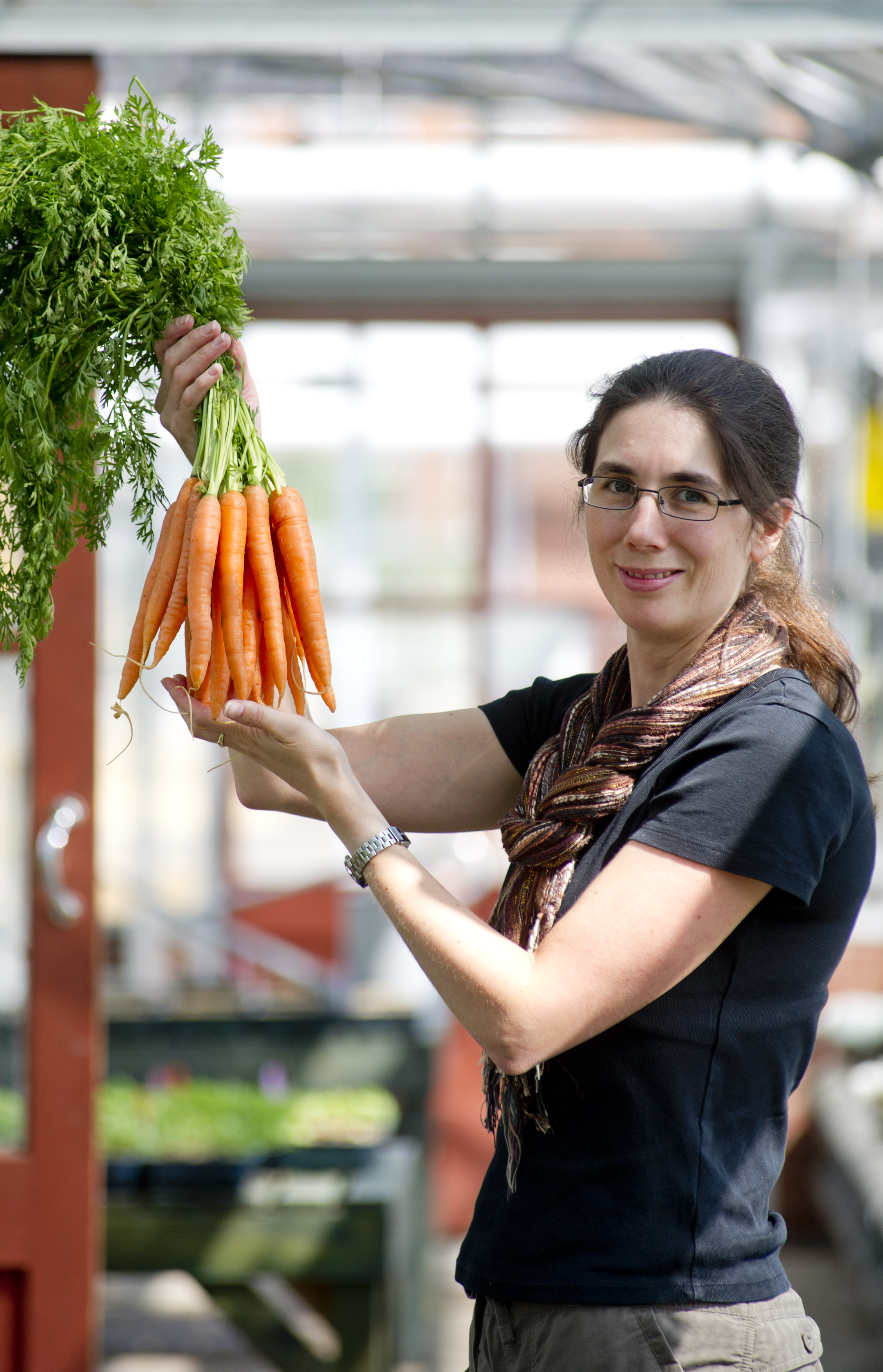Warwick, United Kingdom
August 8, 2013

The University of Warwick has captured a snapshot of the genetic diversity of cultivated and wild carrots in order to guide crop researchers and breeders in developing varieties adapted to future growing conditions.
Researchers at Warwick Crop Centre selected 96 varieties of carrot, chosen for their wide range of characteristics, to grow in order to harvest information on their genetic makeup.
selected 96 varieties of carrot, chosen for their wide range of characteristics, to grow in order to harvest information on their genetic makeup.
Called the Carrot Diversity Set, the collection covers wide variations in root shape and colour, with orange, white, yellow and purple carrots included in the sample.
Geographic origin was also a factor in selecting the carrots, with varieties coming from all over the world including Europe, Asia and North America.
Wild relatives of the modern cultivated carrots were also included.
The 96 varieties were grown in the field, which enabled the scientists to study the range of diversity present.
They looked at the way the varieties differ genetically as this can provide guidance on how closely related each variety is.
Once this is known, breeders can choose the best material to use in order to develop new varieties with certain characteristics, for example resistance to a specific disease or ability to withstand drier conditions.

Dr Charlotte Allender, who is leading the research, said : “It is a bit like forensic science where you have a DNA fingerprint of a suspect and you are trying to find the person who matches it.
“But in our case, we are looking for the opposite to a match – we are looking at how varieties differ genetically to one another.
“Once we have found those differences in the DNA sequence – known as markers – these can be used to guide future breeding programmes.
“We’ve deliberately chosen a wide variety of carrots of different colours, shapes and origins as that way we can cover the whole spectrum in terms of diversity.”
Seventy seven of the 96 varieties in the Carrot Diversity Set were selected from the Genetic Resources Unit (GRU) at Warwick Crop Centre, a huge ‘vegetable library’ which contains one of the world’s largest collection of vegetable seeds.
The work on preserving the genetic diversity of carrots will be showcased at a major conference in the US.
Dr Allender will present the work at the International Carrot Conference in the US next week, a big event in the agricultural industry attended by farmers, growers and researchers from all over the world.
She will also give a talk on the wild relatives of the modern cultivars we consume today.
This work and the work of Warwick Genetic Resources Unit is funded by Defra.